Learn How to Capture by Move -- Marco Arena
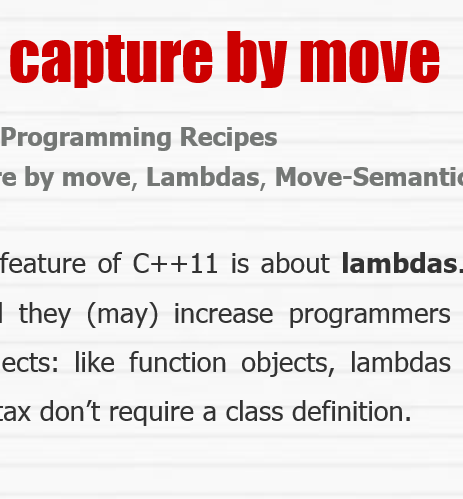
shared_ptr, to get the right behavior. In this article, Marco Arena looks at the shared_ptr approach and offers another potential helper. Observing the tradeoffs in these workarounds can instructive.]
Learn How to Capture by Move
by Marco Arena
what if I want to capture by moving an object instead of both copying and referencing? Consider this plausible scenario:
function<void()> CreateLambda() { vector<HugeObject> hugeObj; // ...preparation of hugeObj... auto toReturn = [hugeObj] { ...operate on hugeObj... }; return toReturn; }This fragment of code prepares a
vectorofHugeObject(e.g. expensive to copy) and returns a lambda which uses thisvector(thevectoris captured by copy because it goes out of scope when the lambda is returned). Can we do better?"Yes, of course we can!" – I heard. "We can use a
shared_ptrto reference-count the vector and avoid copying it." ...

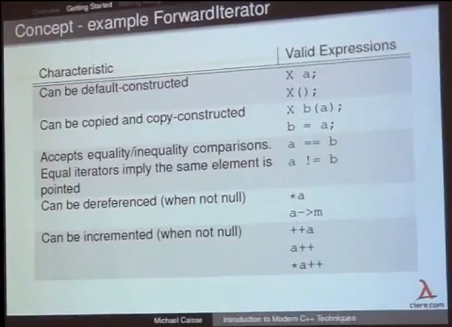
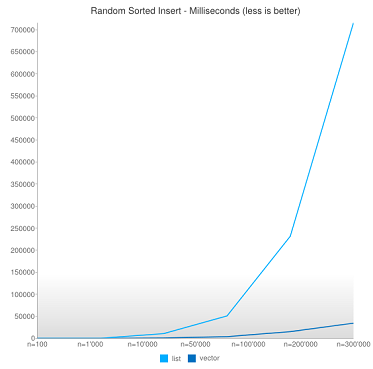
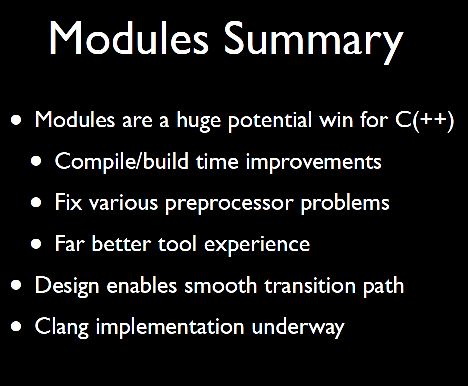
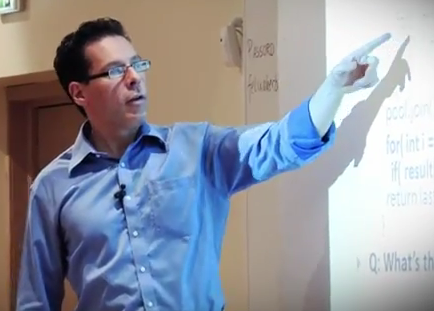

 On vector<bool>
On vector<bool>
 You can help. It's easy, and here's how.
You can help. It's easy, and here's how.
